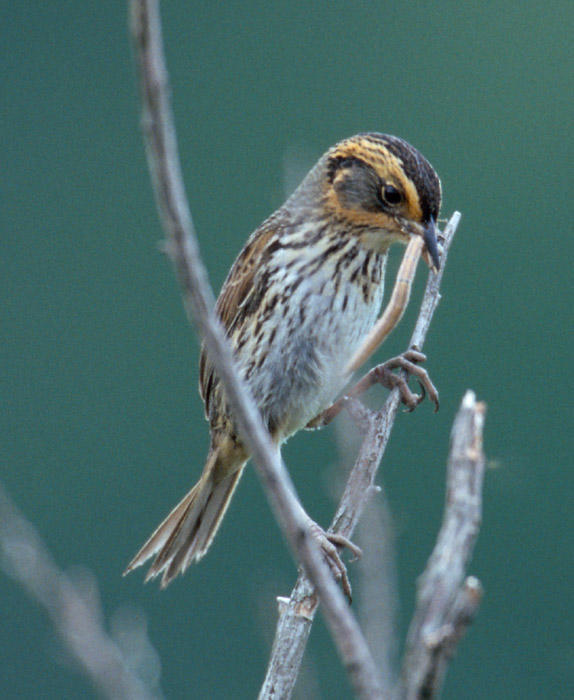The Superior National Forest has expanded a closure area, as the Wooden Leg Fire moves towards the high-risk 1999 blowdown area. The Wooden Leg Fire, which is only a quarter acre in size, has already sparked the closing of Ensign Lake some twenty miles from Ely. The closure has been epanded to several other lakes, in response to the fire's progression towards a tract of land that contains a great amount of highly flammable dead wood, the result of a wind storm over a decade ago.
 |
| Nelson's sharp-tailed sparrow |
Anoka Wildlife Corridor
John and Barb Anderson, fourth-generation Anoka landowners, have joined with the Minnesota Land Trust to protect valuable wildlife habitat in the urbanized county. The 80 acres of grasses and wetland provide key habitat for species identified by Minnesota's Comprehensive Wildlife Conservation Strategy, including the red-headed woodpecker, smooth green snake, and Nelson's sharp-tailed sparrow. Along with the 92 acre easement made by the family in 2005, over half of the 260 acre farm is preserved for wildlife. Funding for the project was provided by the Minnesota Environment and Natural Resources Trust Fund through their Metro Conservation Corridors program, which seeks to connect the disaparate patches of high-quality habitat throughout the metro, creating more resilient wildlife communities.
The experimental use of pesticides to control zebra mussels may be working in one northern Minnesota lake, according to the DNR. The agency applied the treatment to Rose Lake in Otter Tail County last autumn when a small population of the invasive species was found in the lake. No zebra mussels have been found in the water samples from Rose Lake this summer, says DNR Invasive Species Specialist Nathan Olson. He urges caution, however. "From my experience with zebra mussels, they seem to have a really big increase in about two years,once they're found in a lake," Olson said. "If I don't see any zebra mussels for about two years, then I'm going to be more excited about our success rate."
Image Source: Phil Jeffrey
No comments:
Post a Comment